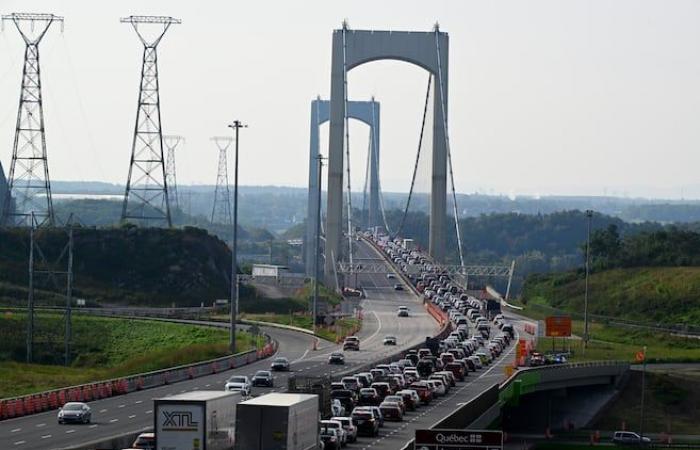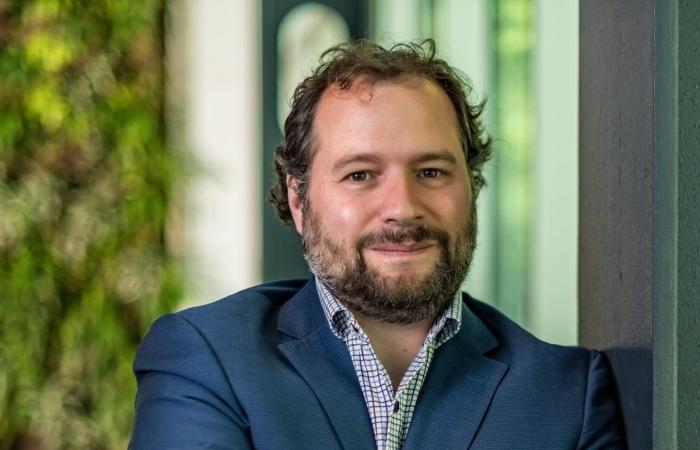This is what the vice-president of Public and Economic Affairs at the Federation of Chambers of Commerce of Quebec (FCCQ), Philippe Noël, puts into perspective.
“Congestion leads to productivity delays, which costs businesses and ultimately consumers more because the bill is often passed on to them,” he said in an interview with The Sun.
Philippe Noël, vice-president of Public and Economic Affairs at the Federation of Chambers of Commerce of Quebec (FCCQ). (Frédéric Matte/Archives Le Soleil)
He is convinced that collective transport helps with the flow of traffic since it allows many individual vehicles to be removed from the roads. This would avoid supply delays for companies’ production.
“Public transport frees up the road for the transport of goods and the transport of employees who live on the outskirts of cities, and thus prevents trucks from being stuck in traffic,” he adds.
It must be effective
But for there to be fewer cars on the roads, public transportation must be efficient, warns Mr. Noël, especially in Quebec.
“It is important that there is an efficient public transportation network in the Capitale-Nationale with connections between the south shore and the north shore. The more efficient means of public transport there are, the more it will increase fluidity,” he mentions.
According to the spokesperson for the TRANSIT Alliance and general director of Vivre en Ville, Christian Savard, efficient public transport must have high frequency, all day long, because there is an increase in traffic outside peak hours.
“The possible addition of metrobus lines in Quebec could make a real difference and people can begin to imagine a life not only around the use of the car,” says Mr. Savard.
Christian Savard, general director of Vivre en ville and spokesperson for the TRANSIT Alliance. (Living in the city)
“We will not put buses every ten minutes in all the suburban neighborhoods of Quebec, but we must increase this type of offer and not just in the city center,” he continues.
The latter also thinks that a tram could improve the efficiency of public transport in the capital, in particular by freeing up metrobuses to cover more of the north-south axis of the municipality, for example.
Not in the right direction
On the other hand, better efficiency of public transport will require more funding from the provincial government, say Christian Savard and Philippe Noël. Even after the CAQ’s $880 million in funding for the main transportation companies, including the Réseau de transport de la Capitale (RTC).
“We put the lid on the pot to make public transportation work in the short term, but there is a lack of a long-term vision to increase the service offering year after year. We must put in place a financial framework that will really improve public transport,” says the spokesperson for the TRANSIT Alliance and general director of Vivre en Ville.
This provincial funding is then seen as a first step in the right direction. Christian Savard is impatiently awaiting the second step which could come on Monday with the announcement of a final agreement for the tram project.
“I think this time it’s the right one,” says Mr. Savard with a touch of optimism.







